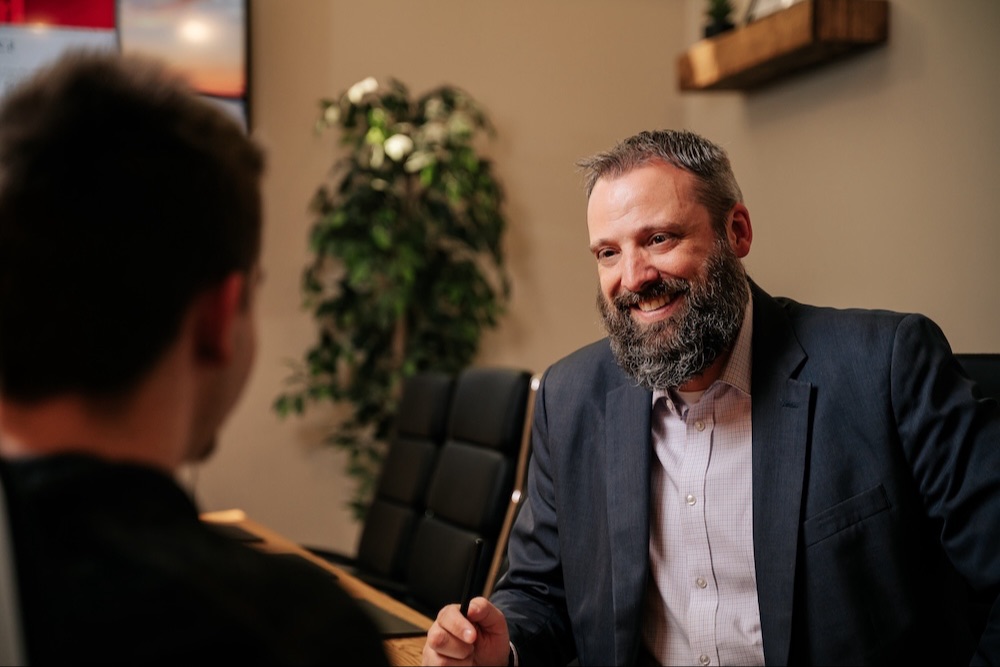What Is Midlife Coaching and Why It’s Gaining Momentum
Midlife coaching is a growing specialty within the broader life coaching field, aimed at helping individuals navigate the complex transitions that often emerge between the ages of 40 and 65. From shifting careers to redefining personal identity, midlife can bring a whirlwind of change that calls for deep personal reflection and empowered action. Many people at this stage begin to ask important questions about purpose, meaning, and fulfillment. That’s where a certified midlife coach becomes invaluable. These professionals support clients in rediscovering confidence, setting meaningful goals, and taking control of their future. With growing awareness around mental wellness and personal growth, midlife coaching has become increasingly sought after. It offers a space for people to feel heard, validated, and guided through some of life’s most defining moments.
The increasing popularity of this niche is tied to cultural shifts and an aging population that is staying active and purpose-driven longer than previous generations. More people are looking for mentors who understand the nuances of midlife and who can guide them toward reinvention rather than retirement. A midlife coach certification equips professionals with tools that go far beyond general coaching—they learn how to support clients in transforming midlife from a crisis into an opportunity.
What Does a Certified Midlife Coach Do?
A certified midlife coach is trained to work specifically with individuals navigating the unique mental, emotional, and practical challenges of middle age. These may include career stagnation, divorce, adult children leaving home, hormonal changes, aging parents, or a desire to finally pursue long-shelved dreams. A midlife coach helps clients gain clarity on what they truly want, develop new habits, and take action toward fulfilling goals that align with their next chapter.
Unlike general life coaches, midlife coaches focus on mindset shifts and emotional patterns that often surface during these transitions. They guide clients through reframing limiting beliefs, overcoming feelings of invisibility, and reigniting a sense of purpose. Certified coaches learn to use reflective tools, values assessments, and visualization techniques to create breakthroughs. Whether a client is feeling stuck in their job or struggling with self-worth, a midlife coach provides a safe and empowering space to explore options.
Midlife coaches often find themselves working with both men and women, although many specialize in helping women reimagine life after 40. They help clients set goals in areas like wellness, creativity, relationships, and career, using a blend of intuition and structured planning. Their ability to relate deeply with their clients often comes from their own personal experiences in midlife, which adds authenticity and depth to their practice.
Why Get Certified as a Midlife Coach?
While life experience is incredibly valuable, earning a midlife coach certification adds professional structure and credibility to your coaching practice. Clients are more likely to trust and invest in a coach who has received formal training, especially in a niche as emotionally complex as midlife. Certification programs provide the theoretical foundation and hands-on practice needed to serve clients effectively and ethically.
Being certified demonstrates that you’ve committed to a high standard of coaching excellence. It assures clients that you’re trained in frameworks that work and that you operate under ethical guidelines. Additionally, certification connects you with a community of like-minded coaches and mentors, providing a network of support and collaboration. This sense of belonging is especially powerful for those pivoting into coaching as a second career.
Many certification programs also include business development tools, helping you to market your services, attract ideal clients, and build your practice sustainably. Whether you’re transitioning from a corporate background, a helping profession, or stepping into coaching for the first time, certification ensures you’re well-equipped to create transformational results. It turns your desire to help into a professional offering that is both impactful and respected.
What to Expect in a Midlife Coach Certification Program
Enrolling in a midlife coach certification program is an exciting and transformative step. These programs typically combine foundational coaching skills with specialized training in life transitions, mindset mastery, and emotional resilience. Expect to learn how to identify and shift limiting beliefs, facilitate deep conversations, and help clients navigate uncertainty with grace.
Courses may include topics such as the psychology of aging, managing midlife stress, building healthy habits, and crafting personal reinvention strategies. You’ll also explore how to coach through grief, burnout, and identity loss—common experiences during midlife. Interactive elements such as live coaching labs, peer practice sessions, and instructor feedback help you build real-world confidence.
Some programs offer additional modules on menopause coaching, career reentry, or empty nest support, allowing you to further niche your services. Many are delivered online for flexible access, which is perfect for learners balancing work or caregiving. Instructors often have decades of combined experience and bring valuable insights into what actually works in this field. By the end of a comprehensive program, you’ll be prepared to support clients with empathy, structure, and lasting impact.
Key Features to Look For in a Quality Certification Program
Choosing the right midlife coach certification program requires thoughtful consideration. First and foremost, look for accreditation or affiliation with reputable coaching organizations such as the International Coaching Federation (ICF) or the International Association of Coaching (IAC). These affiliations ensure that the training meets professional standards and includes the necessary hours of instruction and practice.
A strong program will offer both core coaching foundations and midlife-specific training. This includes techniques for mindset shifting, habit formation, and emotional intelligence. Be sure the program includes supervised practice sessions, opportunities for mentorship, and feedback on your coaching style. These features are essential for developing confidence and competence.
Flexibility is another factor to consider—online or hybrid models are ideal for working adults. Some programs even offer self-paced modules combined with live support. Also, review what kind of post-certification support is provided. Will you have access to alumni communities, business-building resources, or ongoing education? These extras can make a significant difference as you launch and grow your coaching practice.
Top Career Paths You Can Pursue After Certification
Earning a midlife coach certification opens the door to a range of fulfilling career possibilities. Many graduates launch private coaching practices, offering one-on-one or group sessions focused on navigating midlife change. Others create workshops, retreats, or online programs that support clients through transitions like career reinvention or post-divorce recovery.
Corporate coaching is another growing field, especially in companies with older employees managing burnout, retirement planning, or leadership changes. As a certified midlife coach, you may also partner with wellness centers, HR departments, or nonprofit organizations supporting women’s empowerment and healthy aging.
Some coaches expand into speaking, podcasting, or authorship, sharing their insights with broader audiences. Others take on mentorship roles, helping newer coaches find their voice. Whatever path you choose, midlife coaching is a meaningful way to build a legacy while making a direct impact in people’s lives. You’re not only coaching others—you’re also creating a career aligned with your own values and evolution.
How Midlife Coaching Changes Lives—Including Yours
Becoming a certified midlife coach is often as transformative for the coach as it is for the client. You’re not only stepping into a new career—you’re stepping into a more purpose-driven version of yourself. Many people who train in this field are themselves navigating major transitions and find that the process of learning to coach others brings clarity, healing, and new momentum.
As a coach, you become a trusted guide for clients who are seeking clarity, confidence, and renewed purpose. You help them shift from uncertainty to action, from fear to vision. At the same time, you also witness your own growth as you master powerful coaching techniques and connect with a vibrant community of peers.
Midlife coaching is not just a job—it’s a calling. You use your life experience not as baggage, but as wisdom. With the right certification, you gain both the structure and freedom to create a business that reflects your strengths and values. Whether you coach part-time or build a full-time practice, you are creating lasting impact—for others and yourself.
How Much Can a Certified Midlife Coach Earn?
Income for midlife coaches varies widely depending on location, experience, and business model. On average, certified life coaches in the U.S. can earn between $50 to $300 per hour, with many midlife coaches charging on the higher end due to their niche expertise. Some coaches work exclusively with private clients, offering packages that range from $1,500 to $5,000 or more.
Other coaches generate additional revenue through group programs, online courses, speaking engagements, or writing books. Building multiple income streams can create a more sustainable and scalable business. If you’re working part-time, you may earn $20,000 to $40,000 annually, while full-time coaches can make $75,000 or more, especially if they’ve built a strong reputation and client base.
Keep in mind that your earnings will depend on how effectively you market yourself, build a brand, and retain clients. A good certification program will prepare you not only to coach but also to run a profitable business. With dedication and clarity, midlife coaching can become both a financially and emotionally rewarding career.
How to Get Started on Your Certification Journey
If you’re feeling called to become a midlife coach, the first step is to assess your personal motivations and readiness. Ask yourself what experiences, values, and skills you bring to the table. Consider what kind of clients you feel most passionate about serving—whether it’s women in career transition, men facing retirement, or individuals seeking spiritual growth.
Next, research certification programs that align with your goals. Look at curriculum, flexibility, and support services offered. Make sure the program resonates with your preferred learning style and timeline. Once enrolled, commit fully to the process—participate actively in sessions, practice with peers, and take time to reflect on your growth.
As you near certification, start building your brand and presence. This may include creating a website, choosing a coaching niche, and developing content that showcases your voice. By the time you graduate, you’ll be ready not just to coach—but to lead others through one of life’s most transformative stages.
FAQ: Answers to Common Questions About Midlife Coach Certification
Q1: Do I need a coaching background to become a midlife coach?
No prior coaching experience is required. Many people enter midlife coaching as a second or third career. Certification programs provide all the training you need to get started.
Q2: How long does certification take?
Most programs range from 3 to 12 months, depending on format and depth. Some offer self-paced learning, while others include live sessions and mentorship.
Q3: Are there age or education requirements?
Most programs do not require a college degree or age minimum. However, midlife experience and emotional maturity are valuable assets in this field.
Q4: What types of clients do midlife coaches typically work with?
Clients include professionals in transition, stay-at-home parents returning to work, retirees seeking purpose, and anyone facing identity shifts during midlife.
Q5: Is midlife coaching recognized as a professional career?
Yes. As awareness of coaching grows, midlife coaching is increasingly recognized as a valuable service with high impact and strong demand.










